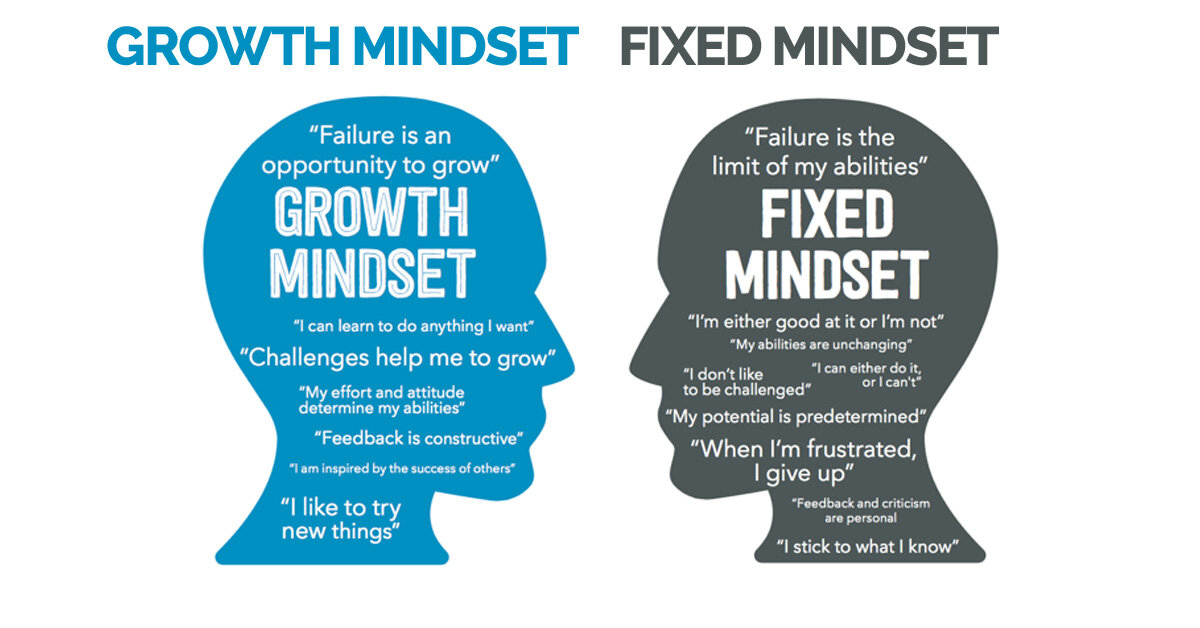When life battery needs a power bank
Try to recall a time, when you just laid down on the bed, gazing at the wall, lost in memory almost untraceable, thinking about when would you move to your study table and open that book. The same book is the gateway to the possibility that you will clear the exam with shining marks. There is a chance you might make the deadline for the surprise assignment and what if you get that presentation ready. It is a challenge, yes. It is like climbing a rocky mountain, but there may come a point, when you get this feeling, “I am done, I can’t go further”
Adopting a growth mindset today is the secret recipe for motivation
Picture 1: Differences between beliefs in growth and fixed mindset
“The brain constantly redesigns itself by forming new neural associations all through life. This wonder is called neuroplasticity”
Carol Dweck, a Stanford researcher says that individuals create mental environments that cultivate or dampen efforts when moving towards carrying out various tasks. These mindsets are shaped by the inputs received from their self-talk, what their parents say to them and how their peers interact with them. Dweck revealed two kinds of mindsets in her research, growth and fixed.
As one starts adopting a growth mindset, individuals will realize the real value of a given task and self-regulate to commit the required actions.
From laziness to action?
If our performance and efforts don’t match the result, it is called effort mismatch and soon the laziness enters the scene, there are three simple questions you ask yourself to kickstart the motivation:
-
Identify the self-talk – is it focused on growth?
Individuals with a fixed mindset care a lot about the result of their planning, be it the implementation of goals, or their failed attempts to counter procrastination but individuals with a growth mindset, pay attention to the learning process involved, not the results arising from the process. If the results don’t match their effort, then they focus on improving weaknesses.
-
Do you want things easy, or you want to make efforts?
Individuals with a fixed mindset believe their natural talent brings easy achievement, while individuals with a growth mindset are conscious, that there is no substitute for effort. When the challenges arrive, fixed mindset kicks in. The fixed mindset, drives you to believe, that you can only do this much, and no more is possible, and even if it was possible, the easiest way is visible, to drop it and relax, thinking that ignorance is bliss.
-
Your Plan A has failed, do you blame or do you course correct?
When individuals with a fixed mindset hit a roadblock, a missed routine, an ignored task, it’s all about them and how they were not able to do it. To defend themselves, they will conceal their shortcomings, instead of reaching out for help. For individuals with a growth mindset, acknowledge and accept that Plan A has failed. They capitalize on mistakes and accept their weaknesses.
Individuals lack motivation because the greatest fear is of failed efforts and difficulty – any challenge has the potential to make them feel worthless. A growth mindset can help an individual to be resilient during difficulties. “Those are the times our brains are forming new connections, and that’s how you get motivated.
If you feel worthless at any point in life, do reach out to an expert psychologist at Mindtribe.
Importance of Professional Counseling: A friend or family member may listen to you, but they aren’t professionally, technically qualified or experienced to offer you professional advice. If you wish you can contact us at MindTribe to receive help from our team of expert psychologists.
About MindTribe.in.
MindTribe Founder Dr. Prerna Kohli, India’s eminent psychologist, established the company to leverage the strength of the online to make counseling affordable and accessible to everyone. MindTribe provides counseling, workshops, support groups, forums, and eLearning.
About the Author.
Rahul Verma is a psychologist at MindTribe.in. You can learn more about him by clicking here
Disclaimer: The views and opinions expressed in this article are those of the author and do not necessarily reflect the official policy or position of MindTribe.in, the Founders, or management team.
Acknowledgement: All images used are open source and from Unsplash.


